
Following the positive responses from participants and presenters, the Centre for Applied Psychology (CAP) once again organised CAP Seminar 2018 on 21 May 2018 at the Kampar Campus. Present at the seminar were Faculty of Arts and Social Science (FAS) Dean Dr Alia Azalea, Psychology and Counselling Head Dr Tan Chee Seng, CAP Chairperson Dr Chie Qiu Ting and staff.
The seminar aimed to provide a channel for CAP members to present their research findings and for CAP members and FAS staff to share research ideas and knowledge besides paving way for potential collaborations. The seminar also hopes for participants and presenters to share their feedback to help improve the quality of research, while stimulating new ideas.
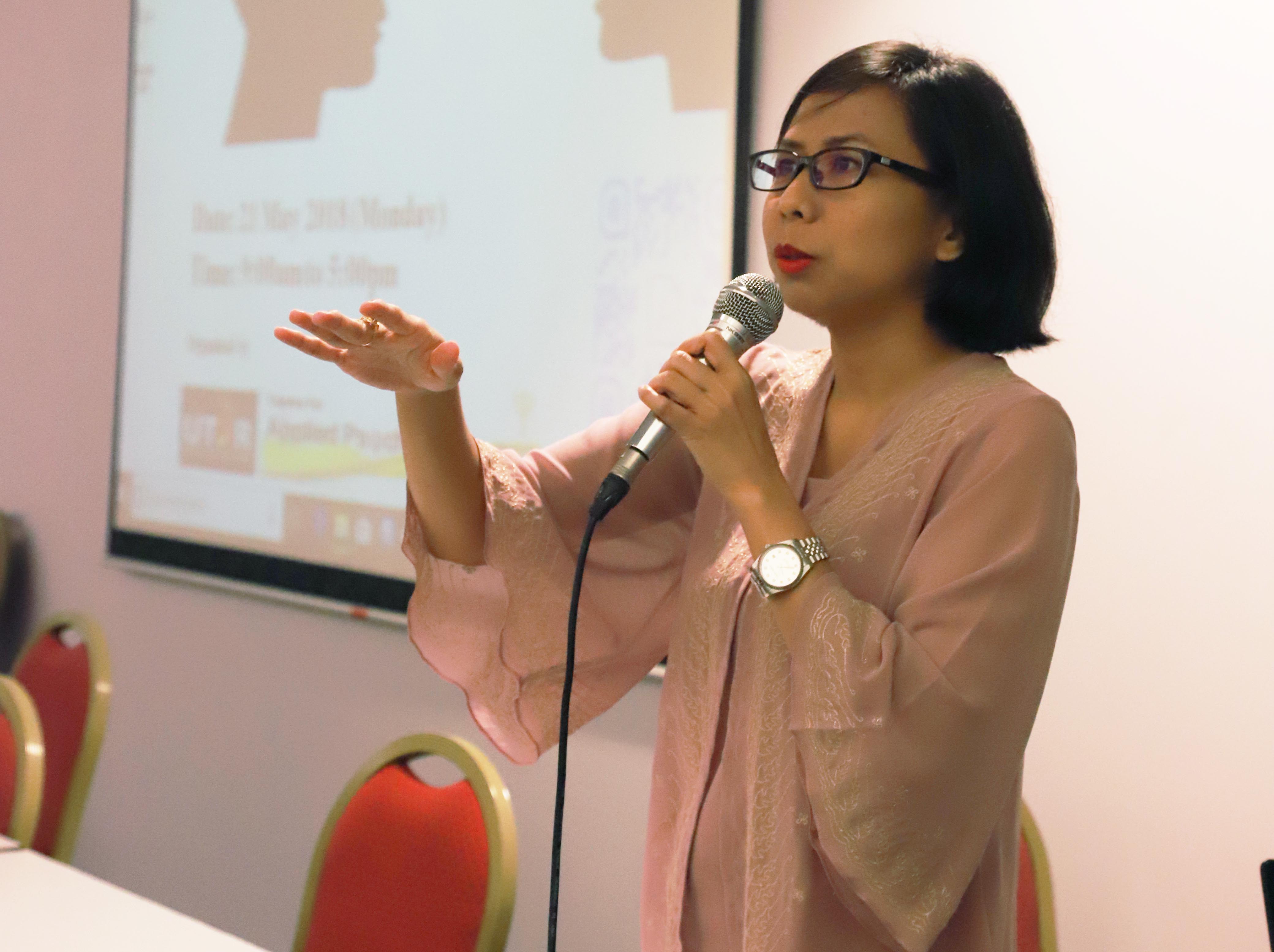
Dr Alia delivering her speech
Dr Alia, in her opening address, mentioned that social science researchers are gaining wide acknowledgement in Malaysia. She expressed the need for social science research, in the field of psychology, to solve issues relating to mental health or mental disorders, and to form a healthy society that will contribute to sustainable developments.
“Let us also look into cross-disciplinary collaborations with fields of the medicine, sciences and many more, which have now become the key to finding solutions to global-scale issues. These include solutions to eradicate poverty, overcoming climate changes and others. Therefore the continuous growth for the field of psychology to collaborate with other fields is essential to solve real-world problems,” said Dr Alia.
The seminar featured three external speakers namely, Assoc Prof Dr Intan Hashimah Mohd Hashim from Universiti Sains Malaysia (USM), Assoc Prof Dr Normala Ibrahim with Dr Tan Kit Aun from Universiti Putra Malaysia (UPM) and Dr Ang Siew Ching from the University of Texas at Austin. A group of undergraduate students from the HELP University was also invited to present their research at the seminar.
Dr Intan enlightened the participants on ways to start and complete a research, with her presentation titled “Getting started to the finishing line: Conducting social science research in Malaysia”. She shared that researchers should first find a suitable topic to begin their research. She also mentioned that the sources of ideas are endless. She then went on to explain about seeking collaborations, securing funding, conducting research and the how-tos on juggling research and other academic activities. She mentioned that researchers may also face challenges in publishing their research but encouraged them not to give up.
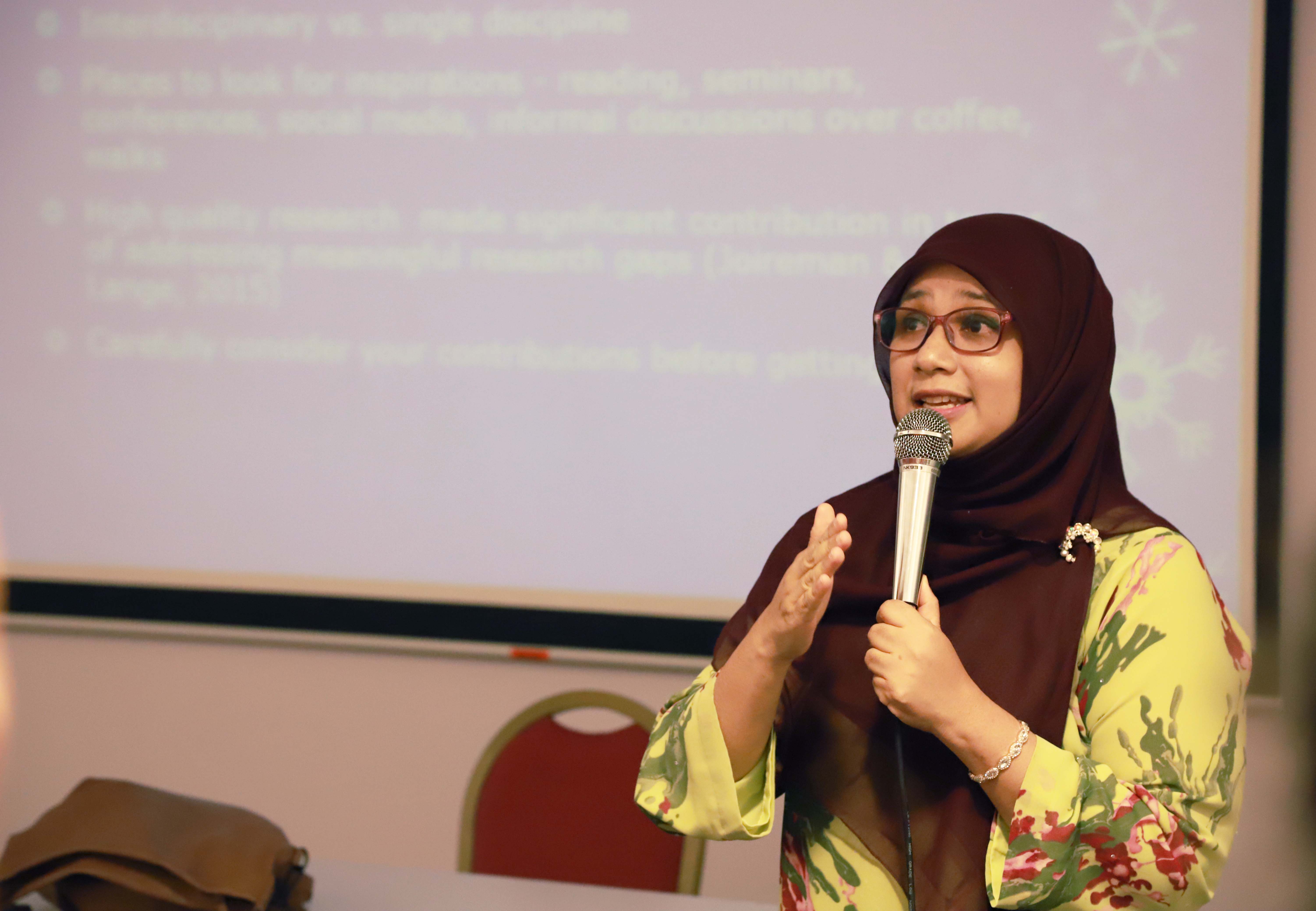
Dr Intan explaining the ways to start a research
Dr Normala gave an introduction to the Malaysian Journal of Medicine and Health Sciences, which focuses on results of original scientific research and development, emerging issues and policy analyses pertaining to medical, biomedical and clinical sciences. She mentioned that this journal accepts categories such as original article, review article, case report, commentary, letter to the editor and short communication. She also explained the submission and peer reviewing processes and reminded participants that failure to comply with the format stated and plagiarism may result in unsuccessful submission.
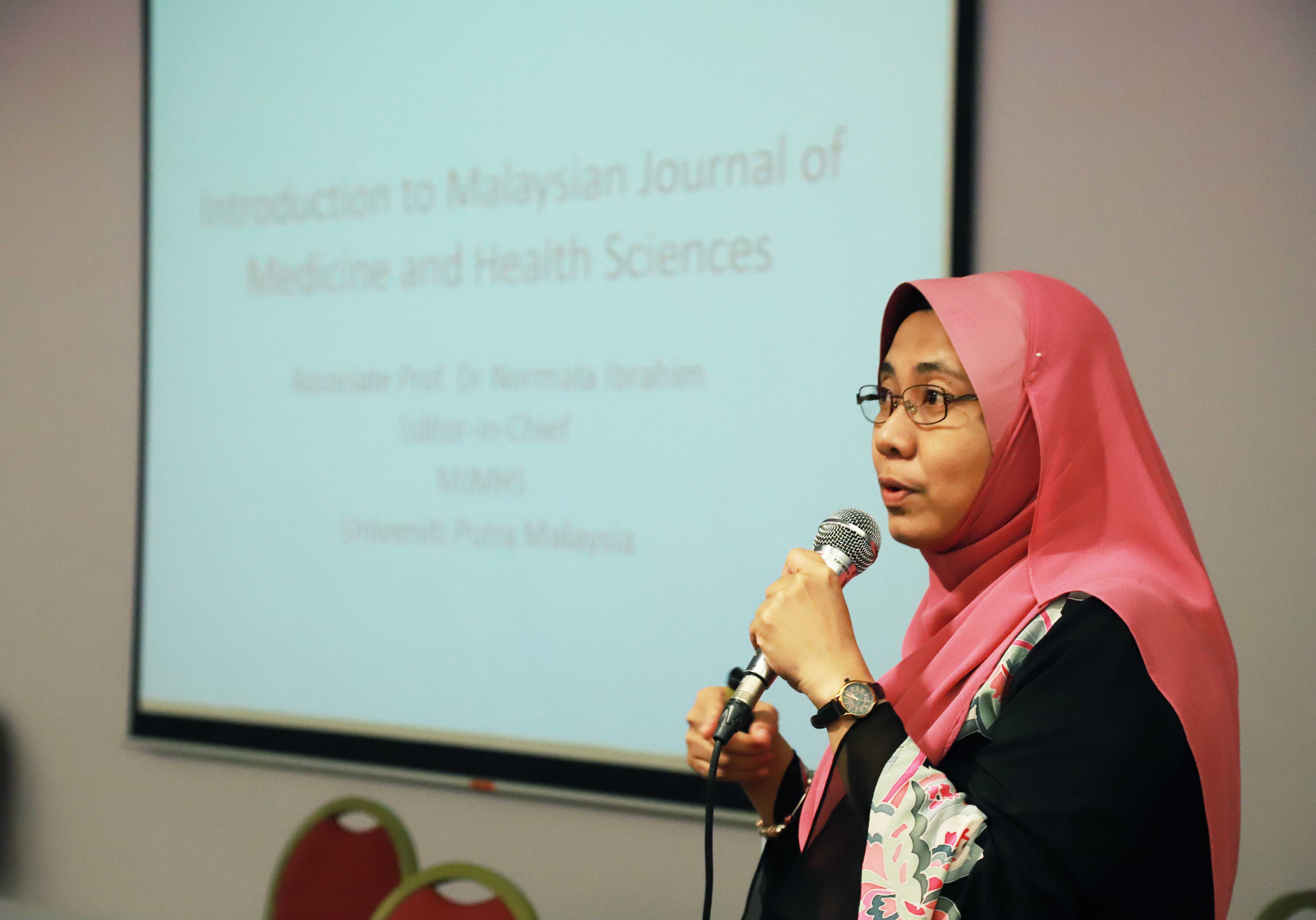
Dr Normala introducing the Malaysian Journal of Medicine and Health Sciences
Dr Ang Siew Ching presented her research titled “The role (opportunities) of social behavioural scientists in the fast-changing landscape of the data world”. Her research gave the participants a glimpse into the current landscape of the data world and shared about data governance and the rationale behind data-driven decision-making.
She also listed the roles (opportunities) of data science, which included increasing quantitative reasoning skills among consumers of data; keeping abreast with the knowledge of statistics and data science; collaborating with technological scientists; opening to other data types; increasing market compatibility; and providing entrepreneurs data-related businesses.
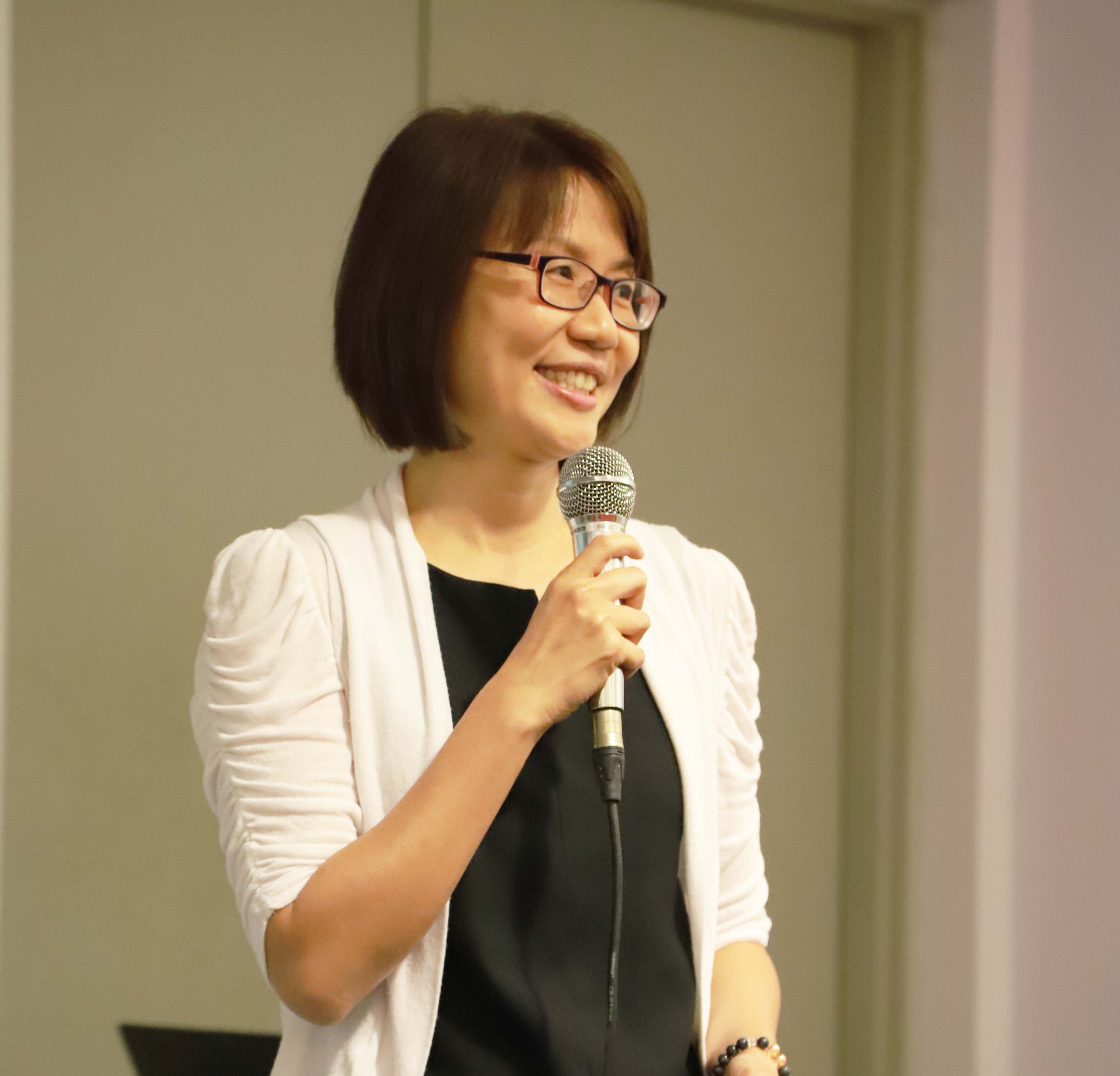
Dr Ang explaining the roles of data science
Meanwhile, the undergraduate students from HELP University presented an interesting research titled “Development and Validation of the Fuckboy Scale: An Exploratory Research” which aimed to develop a scale to determine the degree of fuckboyness in an individual. According to the students, they mentioned that no relevant research was previously done, hence a prior qualitative focus group study was conducted. From the focus group, the young researchers derived seven themes, which are: Manipulative, Persistent Courtship, Flirtatious, Narcissistic, Unfaithful, Materialistic and Sexually Active. For practical application, they expressed their hope to have the scale used on dating platforms, to measure the degree of fuckboyness so that female clients can make better decisions.
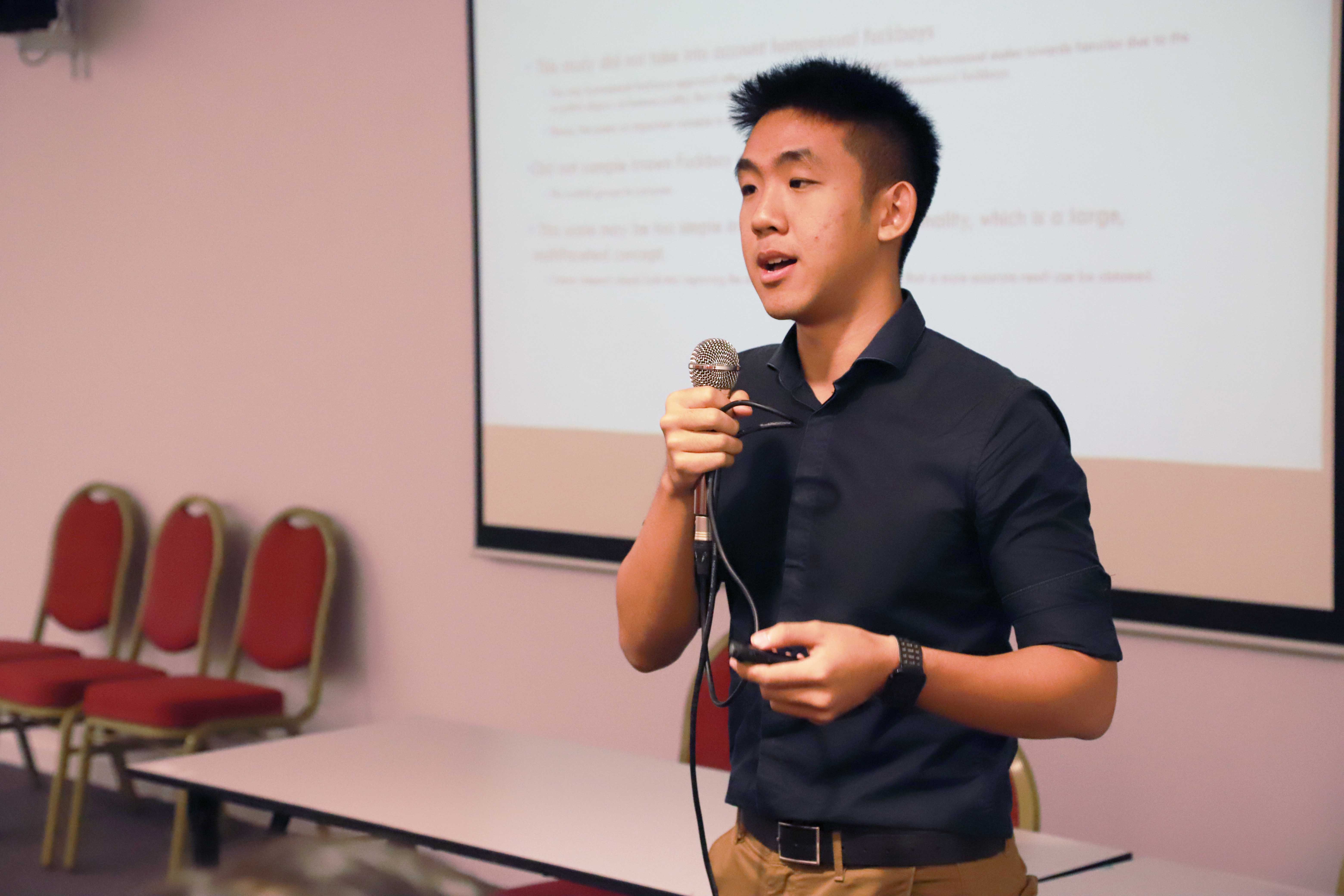
HELP University student Choo Kam Kitt explaining his research
Other research that was presented included FAS lecturer Deepa a/p Visvanathan’s research titled “An Investigation of Impaired Syntactic Comprehension of Semantic Reversible Sentences by a Patient diagnosed with Broca’s Aphasia”. Her study investigates the syntactic impairment in semantic reversible sentences found in a patient diagnosed with Broca’s Aphasia at National Stroke Association of Malaysia (NASAM). The results provided clear evidence that the role of canonical Agent-Theme order plays an important role in agrammatic comprehension, in line with Grodzinsky’s (1990) Trace Deletion Hypothesis (TDH). Deepa also revealed that the performance of a patient’s comprehension pattern in this study supports the account of TDH and in general, TDH could be used to investigate the syntactic impairment in semantic reversible sentences of the patient diagnosed with Broca’s aphasia in this study. She was also awarded the “Best Abstract Award”.
FAS lecturer Komathi a/p Lokithasan with her research titled “Student’s Perceptions on Counselling in a Private Secondary School in Klang Valley” shared to participants that the research aims to understand the students’ perceptions on counselling in a private school. She shared that a student’s perception plays an important role for counsellors in their management of competency improvement. The second objective of her research was to help the counsellor gain insight of the student’s perception, and to plan for a more effective programme, including individual counselling to the students.
Findings from Komathi’s research showed that the students in private school had a positive perception towards the counselling services offered in the school. She highlighted that this indicated the importance of the guidance and counselling unit in the school. She also mentioned that positive perception means students see the counselling department as a useful tool for them to upgrade their personal development, and the positive experience will enlighten teachers, students and school management to make use of their services.
The research, titled “The Impact of Organizational Commitment on Job Performance among Employees in Malaysia” was conducted by FAS lecturers Sanggari a/p Krishnan, Wirawahida binti Kamarul Zaman, Anna Ong Wen Huey, Shoban Chandrasegaran and Buvaana Sugumaaran. It aimed to identify the impact that organisational commitment has on job performance among Malaysian employees. They attempted to determine the influence of different types of organisational commitment such as affective, normative and continuance commitment on job performance. Results from their research have shown that affective and normative are the most important factors to improve job satisfaction as compared to continuance commitment, but it does not predict job performance. This shows that organisational commitment is vital to maintain the job performance although it does not guarantee improvement.
FAS senior lecturers Ang Siew Mun presented her research titled “Developing Sustainably until 2030: A Case Study on a University Town, Kampar (Perak Malaysia)”. The research outlined the sustainable development plans from the Local Planner 2030 by the Kampar District Council and some joint efforts from UTAR as a green campus. The research will be the groundwork for other subsequent research projects. The research also aimed to showcase a small developing town, and to help the community understand the practical challenges that they faced in implementing sustainable plans.
FAS lecturers Pragash a/l Muthu Rajan presented his research titled “Ethnocentrism and Interethnic Interactions: A Study of Malaysia Private University Students”, which he conducted with FAS lecturers Dr M Sultana Alam and Dr Walton Wider. The research investigated the relationship between interethnic interactions and the level of ethnocentrism among undergraduates from a private university in Malaysia, where the majority of students were Chinese. The results show that there is a significant negative relationship between interethnic interactions among the respondents. The results also revealed that 60 percent of the respondents are highly ethnocentric. They hope to conduct a future research to find out the factors that prevent students from engaging in interethnic interactions.
Meanwhile, “The Influential Roles of Religiosity and Spirituality in the Quality of Life among Elderly Adults” research conducted by FAS lecturers Hon Kai Yee, Dr Kok Jin Kuan, T’ng Soo Ting and Ho Khee Hoong, aimed to find out the relationship between religiosity and spirituality and the quality of life among elderly adults, especially the mediating role of spirituality in the relationship between religiosity and quality of life. Findings from the study will add to the existing theory of religiosity, spirituality and quality of life in the context of Malaysia.
Lastly, the research conducted by FAS lecturer Salahuddien bin Ayob, along with Tan Ying Jie, Khiu Huoy Shin and Lim Chii Ying, titled “Empathy, Helpfulness and Religious Orientations: Will They Make You Happier?”, aimed to identify the mediating effect of intrinsic-extrinsic religious orientations in the relationship between aspects of prosocial behaviour and subjective well-being among Buddhist. Results from their research implicate the role of empathy and helpfulness towards people’s well-being.
The CAP Seminar, along with other research-based activities such as the R&D Colloquium 2018, research talks and workshops are also part of UTAR’s ongoing effort to encourage active researching, as well as to promote its research excellence and the importance of research in the development of academic staff.
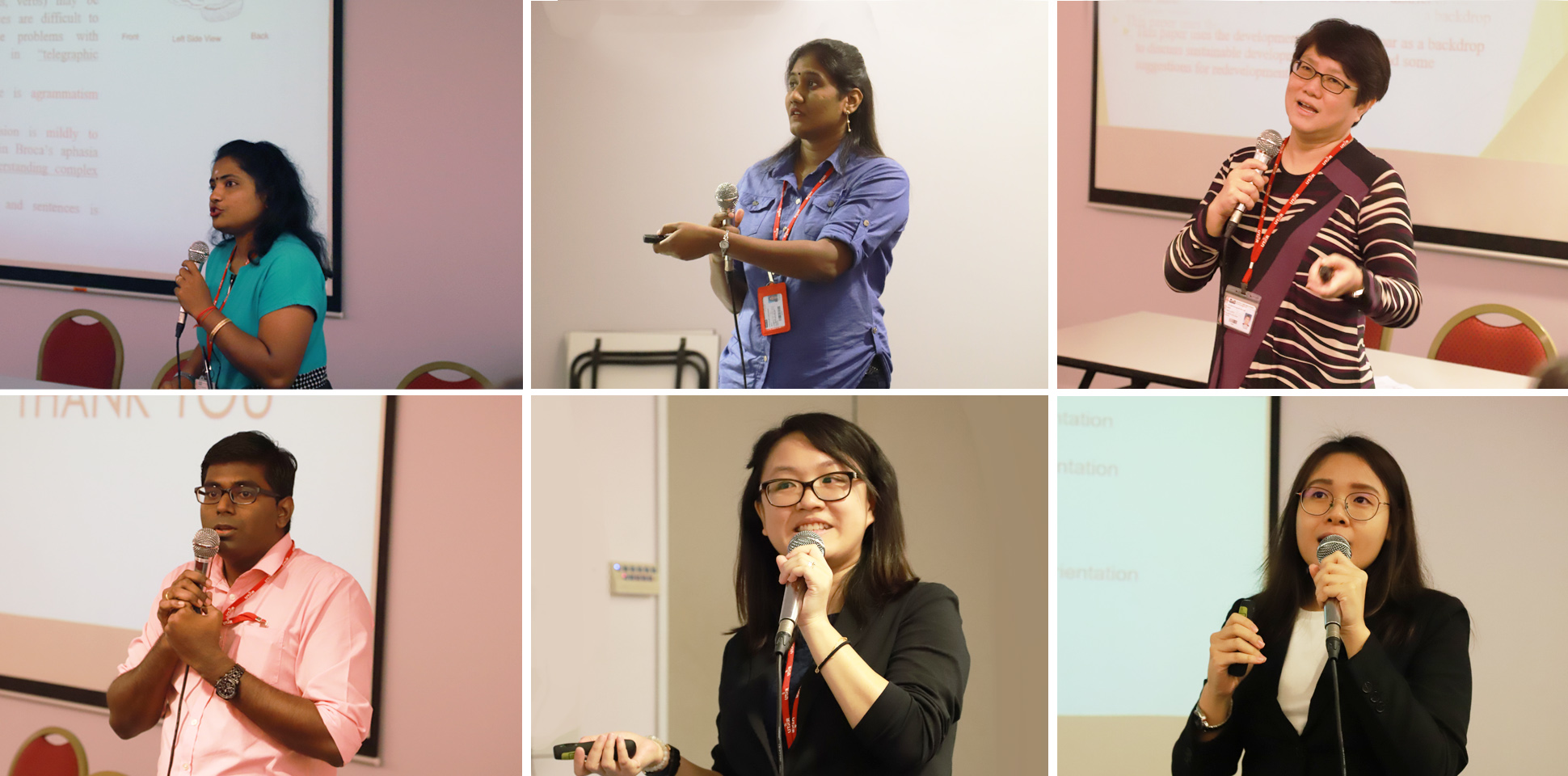
FAS lecturers presenting their respective researches
© 2019 UNIVERSITI TUNKU ABDUL RAHMAN DU012(A).
Wholly owned by UTAR Education Foundation Co. No. 578227-M LEGAL STATEMENT TERM OF USAGE PRIVACY NOTICE